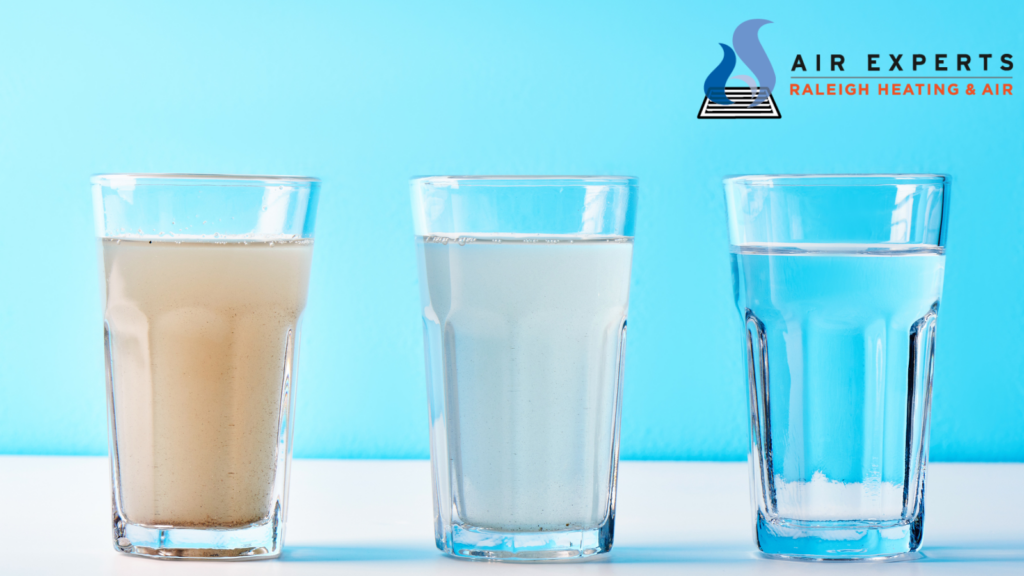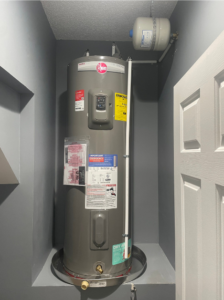Have you ever gotten a water quality alert and then had to deal with the horrible frustration of boiling water before using it, running out to get plenty of bottled water,
Have you ever gotten a water quality alert and then had to deal with the horrible frustration of boiling water before using it, running out to get plenty of bottled water, and having anxiety for weeks afterward about the water you use? We forget how much we depend on the water from our faucets until we have issues like a water quality alert. In this article, we will discuss the advantages of water softeners and filtration systems for your house and how they can help you improve your water quality.
Talking About Water Quality
Various pollutants, minerals, chemicals, and other contaminants can impact water’s taste, smell, and safety. Sediments, germs, heavy metals, and hard minerals like calcium and magnesium are all examples of common contaminants. Depending on its source, treatment, and distribution systems can change the quality of water varies. This is why testing your water is essential, especially for people who use well water since the EPA does not regulate well water. Make an appointment today for a free water quality test with one of our water quality experts.
Fighting Hardness: Water Softeners
You have encountered hard water if you have ever struggled with that disgusting white residue around a sink faucet, dull dishes, or frizzy hair. Never fear, though—you’re not alone. Forbes Home says hard water is found in around 85% of American homes. Hard water is when the water has high magnesium and calcium levels. Hard water is not harmful but can cause several problems to your home.
Signs of Hard Water:
Your fixtures, appliances, and pipes constantly struggle with scale accumulation. The minerals in hard water could eventually damage your plumbing and appliances. A Water Quality Research Foundation found that “running hard water through those units cut efficiency by 48%.” After washing your hands, you still have soap residue on them. Hard water’s calcium content reduces the effectiveness and fizziness of soap. You might have hard water if you can still feel the soap on your hands after singing Happy Birthday twice. Your hair is frizzy and dry. Hard water can cause damage to your hair by decreasing the effectiveness of your shampoos and conditioners and making it more difficult to remove the shampoo. Even though you don’t have any dry skin conditions like psoriasis or eczema, the water has made your skin more sensitive to irritation and dryness. You discover that cleaning your clothes and dishes requires using an excessive amount of soap and detergent. Once more, soaps are less effective with hard water, so you may need to use extra soap or run the machine twice to finish the task.How Water Softeners Work
Water softeners use ion exchange to take out mineral ions from the water. The resin captures the hardness minerals in the water softener, substituting them with sodium ions. This procedure saves energy, prolongs the life of water-using equipment, and enhances the quality of the water for daily usage. For example, the X-Factor Ironsoft water softener may remove up to 10 ppm of ferrous or ferric iron. Water softeners can, at times, remove additional contaminants.
Before installing a water softener, those on a sodium or potassium-restricted diet should speak with their doctors since water softeners often use salt to soften water.

Water Filtration Systems
Even with the best efforts, residual contaminants can still enter our taps and affect the quality of our drinking water. Before using your water, a second screening can be performed with a water filtration system.
Reverse osmosis and carbon filter systems are just two of the many available water filtering systems. Activated carbon filters improve the taste and smell of water by eliminating chlorine and other organic contaminants. A semi-permeable membrane is used in reverse osmosis systems to filter out particles, germs, viruses, and even dissolved salts.
One of your plumbing professionals will discuss the many available water filtration systems and which would be ideal for you and your house when you schedule a free quote today.
Benefits of Water Filtration
Health Protection: Filtration systems eliminate dangerous pollutants like pesticides, heavy metals, and bacteria. Better Taste and Smell: Filtration systems improve water’s taste and smell by eliminating sulfur, chlorine, and other unwanted substances. Save Money: Having a water filtration system at home can help you save money if you are concerned about water pollution. Having clean water available at all times will relieve stress, allowing you to spend your money on other things instead of water bottles. Eco-friendly: Having a reliable water filtration system can significantly reduce the amount of plastic you consume if you purchase bottled water in large quantities.Water softeners and filtration systems ensure water purity, safety, and well-being. These technologies have several advantages, ranging from prolonging the life of our appliances to safeguarding our health. Purchasing water softeners and filtration systems will provide safe drinking water in our homes and promote a healthier community.
If you found this post helpful, check out our other blog posts, subscribe to our YouTube channel, and follow us on social media for more HVAC and plumbing tips, information, and fun!
Air Experts Raleigh Heating and Air is always here for your Heating, Cooling, Indoor Air Quality, Plumbing, and Water Treatment needs. Our award-winning customer service team is available 24/7, or you can easily book an appointment online.










